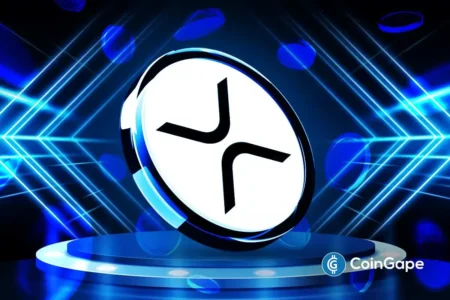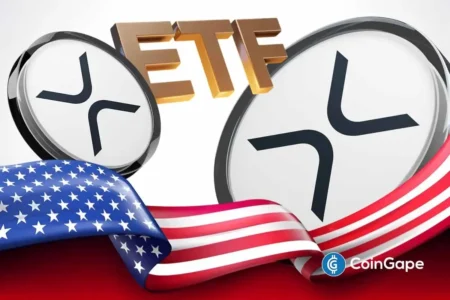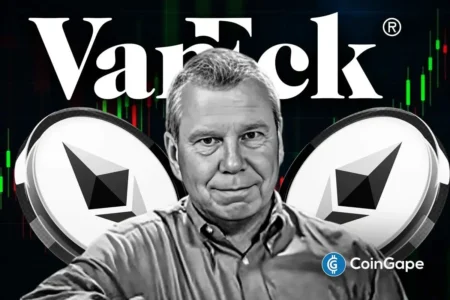Ethereum Governance Concerns: A Call for Transparency and Inclusivity
In recent developments within the Ethereum ecosystem, core developer Péter Szilágyi has stirred up significant controversy by sharing a letter he addressed to the Ethereum Foundation. In this letter, Szilágyi criticizes Ethereum’s founder, Vitalik Buterin, along with his small coalition of influential figures, for exercising excessive control over the network’s development. His concerns have been echoed by Sandeep Nailwal, the CEO of Polygon, who lambasted the Ethereum community’s governance as disorganized and unwelcoming. These criticisms raise fundamental questions about the future direction of one of the most important blockchain networks.
Szilágyi’s Revelations on Centralization
Szilágyi’s letter reveals alarming insights about the decision-making structure within Ethereum. He asserts that a select group of 5 to 10 individuals, along with a few venture capital firms, dominate the ecosystem. This concentration of power led Szilágyi to describe it as a “Vitalik-centric interest group,” implying that project success is closely tied to an entity’s proximity to the core group. This situation contradicts Ethereum’s foundational philosophy of decentralization and merit-based development, further amplifying concerns regarding transparency and inclusivity within the network. The letter has prompted heated discussions, as community members urge for better governance structures that promote equal participation.
Polygon CEO’s Frustrations
Nailwal’s criticisms came in response to Szilágyi’s revelations. He expressed deep disillusionment with the Ethereum community, describing it as a “shit show.” Nailwal conveyed that his long-standing loyalty to Ethereum is being tested as he perceives a lack of support from the Ethereum Foundation toward projects like Polygon, which have made substantial contributions to the ecosystem. His comments denote a growing sentiment among developers and contributors who feel marginalized due to Ethereum’s prevailing social dynamics. Nailwal highlighted that the perception of Ethereum’s community relies heavily on established insiders, sidelining newer and equally promising initiatives.
The Alienation of Key Contributors
Nailwal’s frustrations underscore a troubling trend within Ethereum: even major contributors are questioning their roles and affiliations due to the perceived favoritism and cliques. He lamented that Polygon’s position within the Layer-2 landscape is often overlooked, even while Ethereum-linked projects on Polygon receive accolades. Furthermore, he opined that branding itself as a Layer 1 blockchain could have provided Polygon with a significant market advantage, potentially increasing its valuation multiple times. His criticisms call attention to the need for a more inclusive ecosystem where all projects, regardless of their origin, receive fair recognition and support.
Vitalik Buterin’s Response and Damage Control
Amid the backlash, Vitalik Buterin has engaged in damage control, recognizing the validity of the concerns raised by Szilágyi and Nailwal. In a recent post on X, Buterin praised Polygon’s contributions to Ethereum’s scalability and innovation, asserting that collaboration is essential for achieving the ambitious goal of increasing Ethereum’s scalability by tenfold within the next year. His efforts suggest a pivot towards inclusivity, as he also acknowledged Nailwal’s philanthropic initiatives, including the launch of Balvi, an open-source program dedicated to anti-airborne disease research.
The Future of Ethereum Governance
As the Ethereum ecosystem continues to evolve, the call for improved governance and transparency is more pressing than ever. The revelations by Szilágyi and the subsequent reactions from prominent figures highlight the challenges faced in maintaining a decentralized structure that mirrors Ethereum’s foundational ideals. Establishing clear guidelines for decision-making and ensuring that all contributors feel valued and heard could be crucial steps toward fostering a healthier community. The emphasis on collaboration and inclusivity will not only help mitigate current tensions but also pave the way for sustainable development in the long run, ensuring Ethereum remains a leader in the blockchain space.
In conclusion, the recent upheaval within the Ethereum community underscores the importance of transparency and inclusivity in governance. As voices like Szilágyi and Nailwal highlight systemic concerns, it is essential for Ethereum’s leaders to navigate these challenges thoughtfully and collaboratively, ensuring that the spirit of decentralization is upheld for future generations of developers and users alike.
















